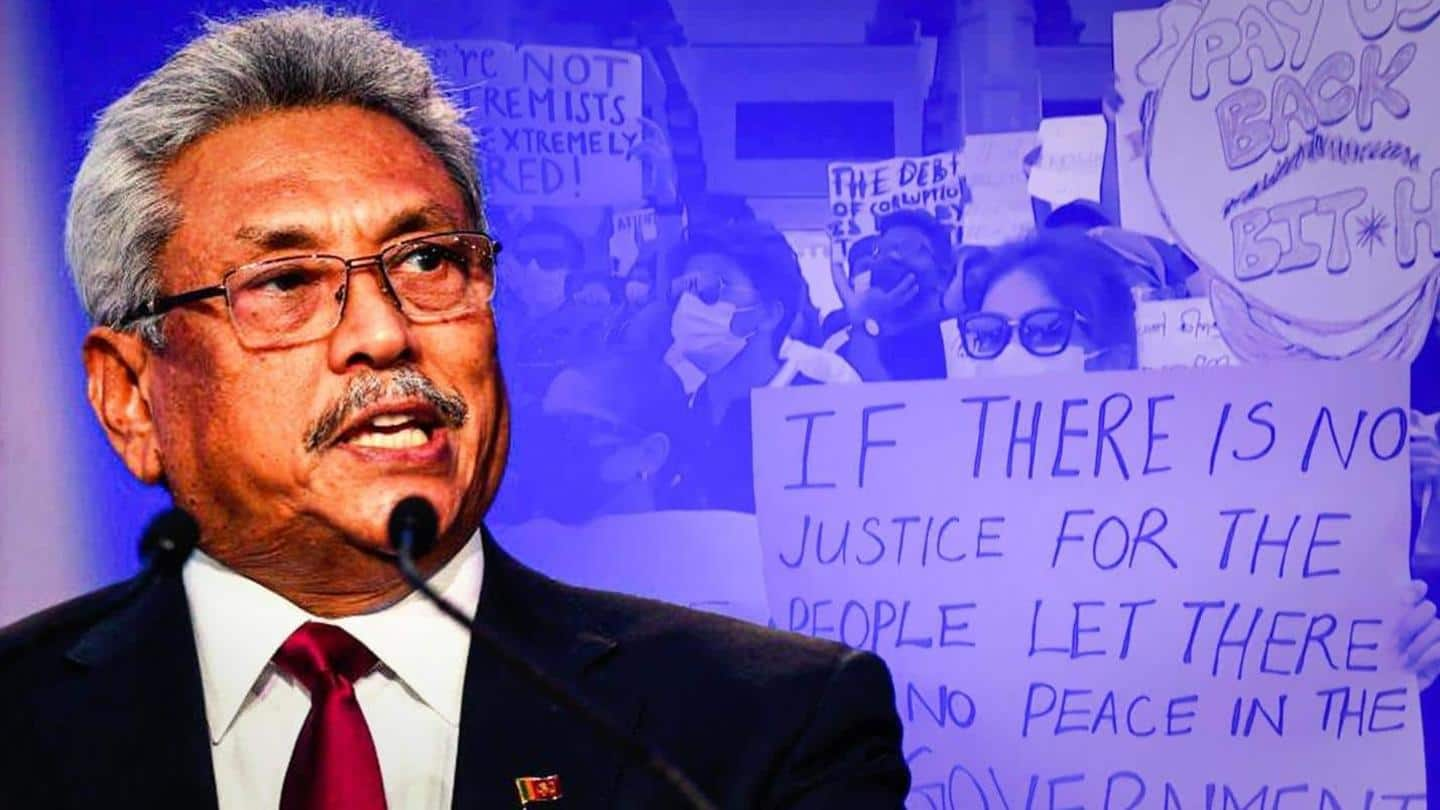
Sri Lanka under state of emergency again as protests intensify
What's the story
Sri Lankan President Gotabaya Rajapaksa on Friday declared a state of emergency for the second time in just over a month as anti-government protests escalated in the island nation.
A spokesperson for the president said the emergency was invoked to "ensure public order" after trade unions held a nationwide strike on Friday demanding Rajapaksa's resignation over the worsening economic crisis.
Context
Why does this story matter?
Earlier, Rajapaksa declared an emergency on April 1 in the wake of widespread protests over the economic crisis in the country.
However, he revoked the emergency on April 5 ahead of a possible vote on it in the parliament.
Lanka has been witnessing its worst economic crisis since its independence, with citizens facing a critical shortage of essential items including food, fuel, and medicines.
Students
Student protesters blocked parliament
Amid an ongoing trade union strike, students have also protested near Lanka's parliament, blocking the entry and exit to the building.
Police reportedly fired tear gas and water cannons at students trying to storm the parliament. However, it had been rendered futile as the protesters quickly reassembled behind police barricades.
On Thursday, too, the police unsuccessfully tried to disperse the crowd with tear gas.
Strike
Trade union strike brought the country to a halt
Friday's trade union strike brought Lanka to a standstill with millions of employees staying off the job and all but one scheduled train service canceled.
Private buses—which account for two-thirds of the country's fleet—were also off the roads on Friday.
Moreover, industrial workers demonstrated outside their factories.
Black flags were also hung across the country in an expression of anger against the government.
Quote
Buses provided for free for protesters
Private Bus Operators' Association Chairman Gemunu Wijeratne said while their buses were off the roads on Friday, they would give their buses for free to protesters who wanted to join the anti-government protests within a radius of 20 kilometers.
Rajapaksas
Rajapaksa insisted he will not resign
Rajapaksa has insisted he will not step down despite protests demanding the resignation of the president and the government, blaming the powerful Rajapaksa clan for mishandling the island nation's economy.
On Friday, the president's brother and Prime Minister Mahinda Rajapaksa—who had also made it clear he will not resign from his position—reportedly faced unexpected pressure to step down at a special Cabinet meeting.
Political crisis
President wants to end political crisis with PM's resignation: Report
Some suggested at the Cabinet meeting that Gotabaya was keen to end the political crisis even with Mahinda's resignation, PTI reported citing ministerial sources.
However, Mahinda's supporters insisted he should not resign as the public demand was more for Gotabaya's resignation.
Reportedly, for the last few weeks, Gotabaya has been wanting the PM to resign in order to set up an all-party interim government.
Background
Why Sri Lanka is facing economic crisis
Sri Lanka's economic crisis stems from its massive foreign debts, dwindling foreign currency reserves, series of lockdowns, soaring inflation, fuel supply shortage, and devaluation of the currency.
It, however, has its root in the Lankan government's move to ban imports in March 2020 to save foreign currency for its $51B foreign debt.
This led to a widespread shortage of essential items and skyrocketing prices.